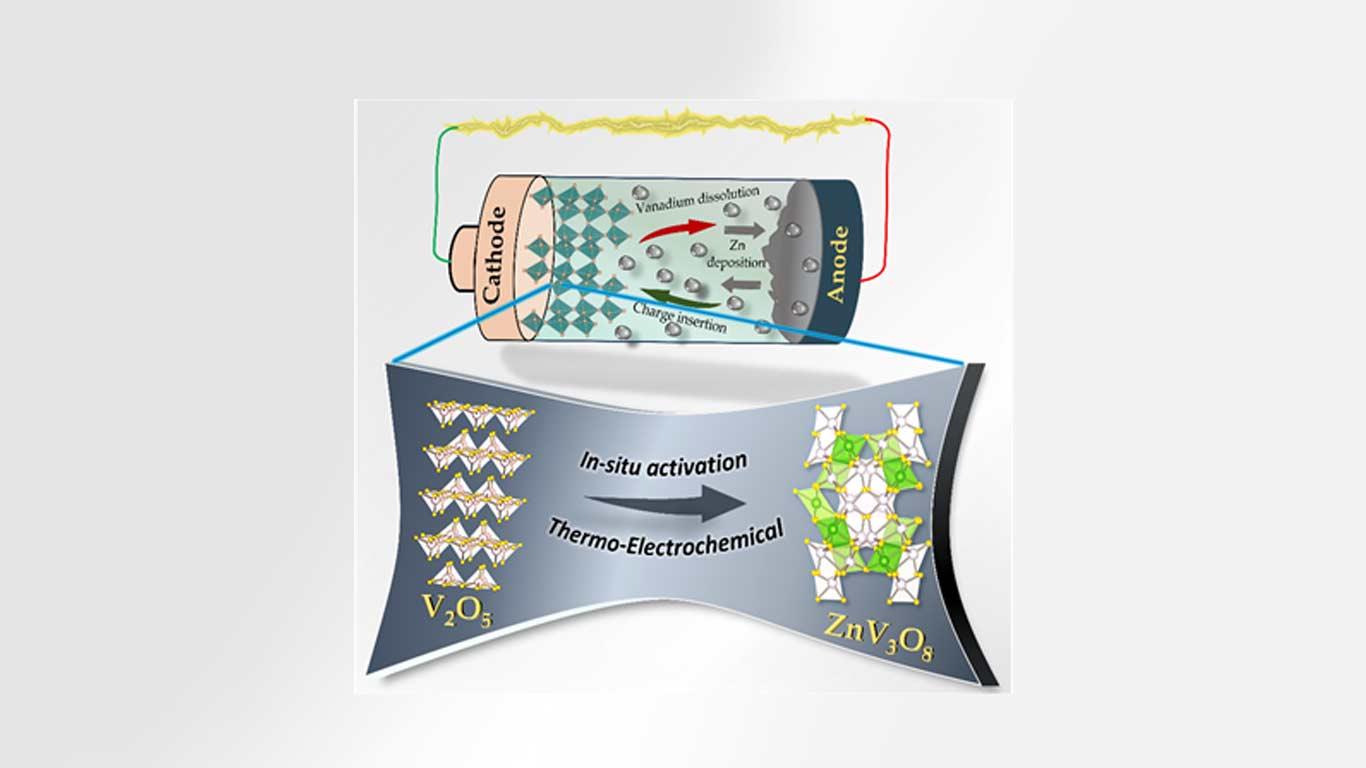
Cens Scientists Develop New Cathode Technique To Boost Zinc Battery Performance
The discovery offers a potential alternative to lithium-ion batteries, which dominate the market but face environmental and safety concerns.
The research team, led by Dr. Ashutosh Kumar Singh, has demonstrated a simple thermo-electrochemical treatment that enhances the structure of widely used vanadium oxide (V2O5).
The process creates controlled defects within the material, converting it into a zinc-vanadium oxide (Zn-V2O5) structure with improved porosity and ion pathways.
According to CeNS, these structural modifications allow ZIBs to store more energy and improve stability by facilitating better movement of zinc and hydrogen ions during charge-discharge cycles.
The activated material also supports significantly longer battery life, with the potential for thousands of recharge cycles without major degradation.
The findings, published in Advanced Energy Materials, address the challenges in developing high-performance cathode materials for zinc-ion batteries, including limited energy density and structural instability in many oxide-based candidates.
Co-author Rahuldeb Roy said the team used a“simple yet novel” method to enhance the cathode material's performance. He noted that the same activation technique could be applied to other materials, supporting wider efforts to develop sustainable, high-efficiency energy-storage technologies.
The research is expected to contribute to the growing global push for environmentally friendly battery systems as alternatives to lithium-based solutions.
(KNN Bureau)
Legal Disclaimer:
MENAFN provides the
information “as is” without warranty of any kind. We do not accept
any responsibility or liability for the accuracy, content, images,
videos, licenses, completeness, legality, or reliability of the information
contained in this article. If you have any complaints or copyright
issues related to this article, kindly contact the provider above.

















Comments
No comment